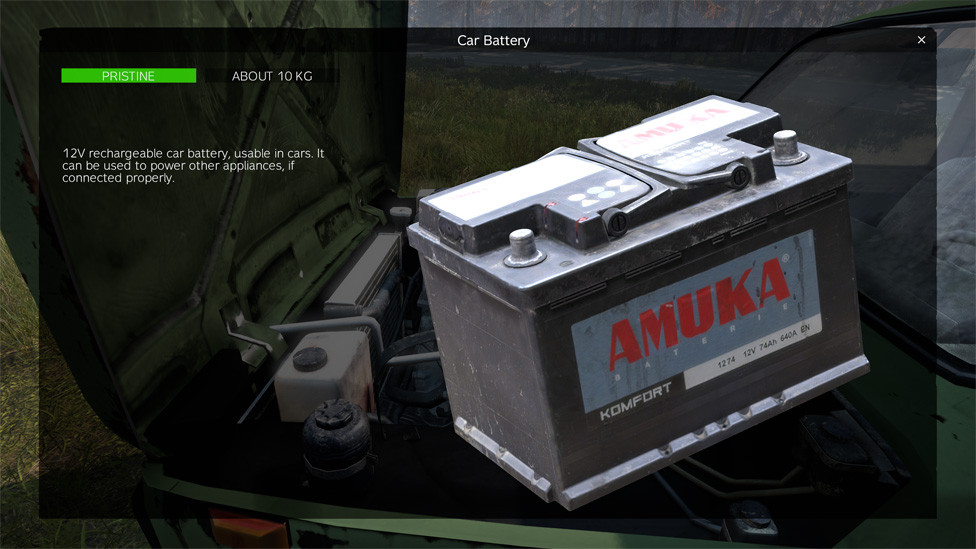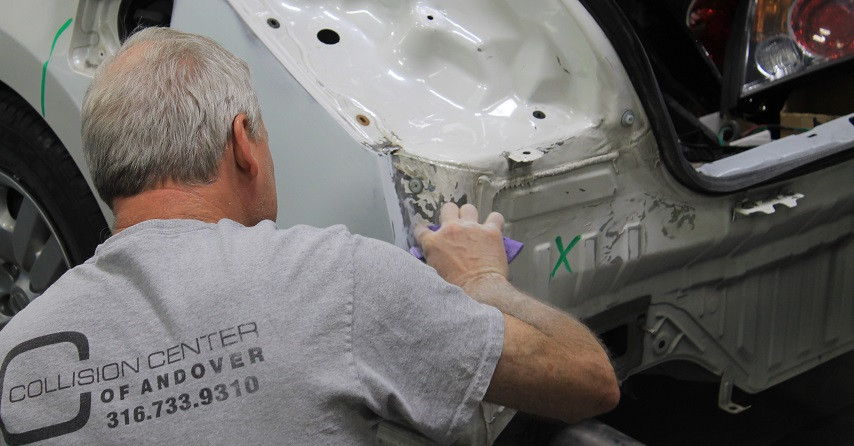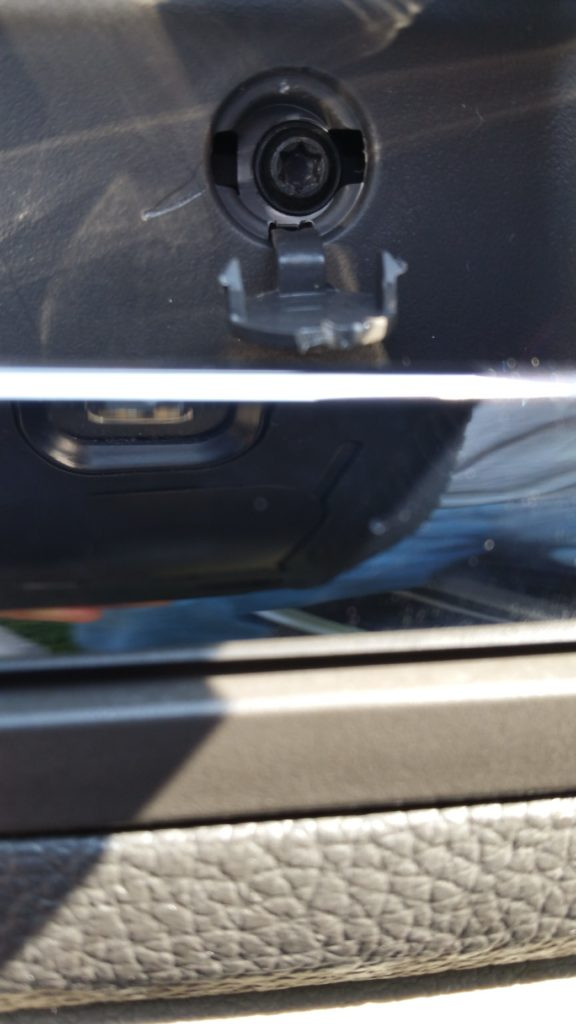How Much Does It Cost To Fix Car Air Conditioner?
Is your car’s AC blowing hot air? Discover the average car AC repair costs, common problems, and DIY fixes to restore cool comfort with CARDIAGTECH.NET. Let’s explore what affects AC repair pricing, and find ways to save money while maintaining a comfortable ride. Invest in reliable auto repair tools from CARDIAGTECH.NET to ensure precise and efficient AC servicing.
1. Understanding the Car AC System
Before diving into costs, it’s essential to understand the basic components of your car’s air conditioning system. This knowledge will help you diagnose problems more effectively and communicate better with your mechanic. Here are the core components:
- Compressor: The heart of the system, responsible for compressing the refrigerant.
- Condenser: Cools the refrigerant after it leaves the compressor.
- Evaporator: Absorbs heat from the cabin air, providing cool air.
- Expansion Valve: Regulates the flow of refrigerant into the evaporator.
- Refrigerant: The substance that cycles through the system, absorbing and releasing heat.
Car AC system diagram showing compressor, condenser, evaporator, and expansion valve
2. Common Car AC Problems and Their Symptoms
Identifying the symptoms early can prevent minor issues from becoming major repairs. Here are some common problems and their corresponding signs:
- No Cold Air: Indicates low refrigerant, a faulty compressor, or a blocked condenser.
- Weak Airflow: Points to a clogged cabin air filter or a failing blower motor.
- Unusual Noises: Suggests a failing compressor or worn-out belt.
- Foul Odors: Typically caused by mold or bacteria in the evaporator core.
- Leaking Refrigerant: Reduces cooling efficiency and can damage components.
Address these issues promptly to avoid further damage. With diagnostic tools from CARDIAGTECH.NET, you can pinpoint the exact cause of the problem, saving time and money on repairs.
3. Factors Influencing Car AC Repair Costs
Several factors can influence the cost of car AC repair. Understanding these can help you budget effectively and make informed decisions:
- Type of Vehicle: Luxury and high-performance vehicles often have more expensive parts and labor rates.
- Complexity of the Repair: Simple fixes like recharging refrigerant are cheaper than replacing a compressor.
- Labor Costs: Mechanic labor rates vary by location and shop.
- Parts Costs: The quality and brand of replacement parts can significantly impact the overall cost.
- Diagnostic Fees: Some shops charge a fee to diagnose the problem, which can be applied to the final repair cost.
Keep these factors in mind when getting estimates from different mechanics. The diagnostic tools available at CARDIAGTECH.NET can help you get a head start in identifying issues, allowing for more accurate quotes.
4. Average Car AC Repair Costs: A Detailed Breakdown
To give you a clearer picture, here’s a detailed breakdown of common AC repairs and their average costs:
| Repair | Average Cost | Description |
|---|---|---|
| AC System Inspection and Diagnostics | $75 – $150 | Includes a thorough examination of the AC system to identify leaks, component failures, or other issues. |
| AC Recharge (Refrigerant Top-Up) | $150 – $300 | Refilling the AC system with refrigerant. Cost varies depending on the type of refrigerant required (R-134a or R-1234yf) and labor rates. |
| AC Hose Repair/Replacement | $150 – $400 | Repairing or replacing damaged AC hoses. Costs depend on the hose material and accessibility. |
| Compressor Clutch Replacement | $450 – $850 | Replacing the clutch that engages the compressor. Includes the cost of the clutch and labor. |
| AC Compressor Replacement | $800 – $1500+ | Replacing the entire AC compressor. The most expensive repair, involving component and labor costs. |
| Condenser Replacement | $300 – $700 | Replacing the condenser, usually due to damage or corrosion. Costs include the part and labor for installation. |
| Evaporator Replacement | $600 – $1200 | Replacing the evaporator, located behind the dashboard. A labor-intensive job, increasing the overall cost. |
| Receiver Drier/Accumulator Replacement | $150 – $400 | Replacing the receiver drier or accumulator, which removes moisture from the refrigerant. Includes the part and labor. |
| Cabin Air Filter Replacement | $30 – $70 | Replacing the cabin air filter to improve airflow and air quality. A simple and inexpensive maintenance task. |
| AC Leak Detection | $100 – $200 | Using special dyes and equipment to locate refrigerant leaks. Helps pinpoint the source of the problem for accurate repairs. |
| Full AC System Replacement/Installation | $2000+ | Installing a completely new AC system. Typically needed for older vehicles or extensive damage. |
These figures are approximate and can vary based on your location and the specific shop you choose. High-quality tools from CARDIAGTECH.NET ensure mechanics can perform these repairs efficiently and accurately.
5. DIY Car AC Repair: When to DIY and When to Call a Pro
Deciding whether to tackle AC repairs yourself or hire a professional depends on your skill level and the complexity of the issue.
When to DIY:
- Recharging Refrigerant: If you’re comfortable using a recharge kit, this can be a simple DIY task.
- Replacing Cabin Air Filter: An easy maintenance task that improves airflow.
- Cleaning Vents: Using AC vent cleaners can eliminate odors and improve air quality.
When to Call a Pro:
- Compressor Issues: Requires specialized tools and knowledge.
- Evaporator Replacement: Involves disassembling the dashboard, best left to professionals.
- Leak Detection: Requires professional equipment to accurately locate leaks.
- Complex Electrical Problems: Requires expertise in automotive electrical systems.
For DIY enthusiasts, CARDIAGTECH.NET offers a range of diagnostic tools to help you perform basic AC maintenance and troubleshooting.
6. Step-by-Step Guide to Diagnosing Common AC Problems
If you choose to troubleshoot your AC system, follow these steps to diagnose common issues:
- Check the Cabin Air Filter: Ensure it’s clean and not blocked.
- Inspect the Condenser: Look for debris blocking airflow.
- Listen for Unusual Noises: Identify potential compressor or belt issues.
- Test the Airflow: Check for weak airflow, which could indicate a blower motor problem.
- Look for Leaks: Examine hoses and connections for signs of refrigerant leaks.
By following these steps, you can identify the problem and decide on the best course of action. Equip yourself with the right diagnostic tools from CARDIAGTECH.NET to make the process more efficient.
7. Essential Tools for Car AC Repair
Having the right tools can make AC repairs easier and more effective. Here are some essential tools:
- AC Manifold Gauge Set: Measures pressure in the AC system.
- Vacuum Pump: Removes air and moisture from the system before recharging.
- Refrigerant Recharge Kit: Allows you to add refrigerant to the system.
- Leak Detector: Helps locate refrigerant leaks.
- UV Dye and Light Kit: Another method for detecting leaks.
- Socket Set: For removing and installing components.
- Wrench Set: For tightening and loosening connections.
CARDIAGTECH.NET provides a comprehensive selection of high-quality tools to meet all your AC repair needs.
8. Saving Money on Car AC Repairs: Practical Tips
Here are some practical tips to save money on AC repairs:
- Regular Maintenance: Prevent costly repairs by maintaining your AC system.
- Get Multiple Estimates: Compare prices from different mechanics.
- Consider Used Parts: Save money by using quality used parts when appropriate.
- DIY Simple Repairs: Tackle simple repairs yourself to save on labor costs.
- Use Coupons and Discounts: Look for discounts at local auto shops.
With proactive maintenance and smart repair choices, you can keep your AC running smoothly without breaking the bank.
9. The Role of Refrigerant in AC Performance
Refrigerant is critical to the performance of your car’s AC system. Here’s what you need to know:
- Types of Refrigerant: Older vehicles use R-134a, while newer models use R-1234yf.
- Refrigerant Leaks: Can reduce cooling efficiency and damage components.
- Recharging Refrigerant: Restores cooling performance but doesn’t fix underlying issues.
- Environmental Impact: R-1234yf is more environmentally friendly than R-134a.
Ensure you use the correct type of refrigerant for your vehicle. Regular checks and timely recharges can keep your AC system functioning optimally.
10. How to Choose the Right Mechanic for AC Repair
Choosing the right mechanic is crucial for reliable AC repairs. Here’s what to look for:
- Certifications: ASE-certified mechanics have demonstrated expertise.
- Experience: Choose a mechanic with experience in AC repair.
- Reputation: Read online reviews to assess their quality of service.
- Warranty: Ensure they offer a warranty on their repairs.
- Transparency: A good mechanic will explain the problem and repair process clearly.
By doing your research, you can find a trustworthy mechanic who provides quality AC repairs.
11. Understanding AC Compressor Replacement
The AC compressor is a vital component, and its failure can be costly. Here’s what you need to know about compressor replacement:
- Symptoms of Failure: No cold air, unusual noises, or compressor clutch issues.
- Replacement Cost: Can range from $800 to $1500+, including parts and labor.
- Importance of Quality: Opt for a high-quality compressor to ensure longevity.
- Professional Installation: Compressor replacement requires specialized tools and expertise.
If your compressor fails, it’s best to have it replaced by a professional mechanic.
12. Common Myths About Car AC Repair
There are several misconceptions about car AC repair. Let’s debunk some common myths:
- Myth: Recharging refrigerant fixes all AC problems.
- Fact: Recharging only addresses low refrigerant levels and doesn’t fix underlying issues like leaks.
- Myth: AC systems don’t need maintenance.
- Fact: Regular maintenance can prevent costly repairs and prolong the life of your AC system.
- Myth: All refrigerants are the same.
- Fact: Different vehicles require different types of refrigerant. Using the wrong type can damage the system.
- Myth: DIY AC repair is always cheaper.
- Fact: Incorrect DIY repairs can lead to further damage and higher costs.
Understanding these myths can help you make informed decisions about AC repair.
13. The Impact of Climate on Car AC Systems
The climate you live in can significantly impact the performance and lifespan of your car’s AC system.
- Hot Climates: AC systems work harder and are more prone to overheating and component failure.
- Humid Climates: Increase the risk of mold and bacteria growth in the evaporator core.
- Cold Climates: Can cause seals and hoses to become brittle and crack.
Regardless of your climate, regular maintenance is essential to keep your AC system running efficiently.
14. Maintaining Your Car AC System: Proactive Steps
Proactive maintenance is key to preventing costly AC repairs. Here are some steps you can take:
- Regularly Check Refrigerant Levels: Ensure the system is properly charged.
- Replace Cabin Air Filter: Keep airflow clean and efficient.
- Clean the Condenser: Remove debris to prevent overheating.
- Inspect Belts and Hoses: Look for signs of wear or damage.
- Run the AC Regularly: Even in winter, to keep components lubricated.
By following these steps, you can extend the life of your AC system and avoid major repairs.
15. How a Faulty Evaporator Affects AC Performance
The evaporator plays a crucial role in cooling the air inside your car. Here’s how a faulty evaporator affects AC performance:
- Reduced Cooling: The evaporator cannot effectively absorb heat.
- Foul Odors: Mold and bacteria growth can cause unpleasant smells.
- Water Leaks: A clogged evaporator drain can lead to water leaks inside the car.
- Increased Humidity: The system struggles to remove moisture from the air.
Evaporator replacement is a complex job, best left to professional mechanics.
16. Addressing Unusual Noises from Your Car AC
Strange noises coming from your car’s AC system should not be ignored. Identifying these sounds early can prevent more significant damage. Here’s what different noises might indicate:
- Squealing: Often points to a worn or loose belt. The belt drives the AC compressor, and when it’s compromised, it can cause a high-pitched squealing noise. Replacing the belt is usually a straightforward and relatively inexpensive fix.
- Clicking: A clicking sound when the AC is turned on could indicate a problem with the compressor clutch. The clutch engages and disengages the compressor, and if it’s failing, it might produce a clicking noise.
- Rattling: Rattling sounds can be caused by loose components or debris inside the AC system. It’s important to have this checked promptly to prevent further damage.
- Hissing: A hissing sound often indicates a refrigerant leak. Refrigerant leaks can reduce the efficiency of the AC system and, if left unattended, can damage other components.
- Grinding: A grinding noise is a serious sign, usually indicating a failing compressor. The compressor is a critical component of the AC system, and a grinding noise suggests internal damage.
If you notice any of these unusual noises, it’s best to consult with a mechanic to diagnose and address the issue promptly.
17. Exploring the Benefits of Regular AC Servicing
Regular AC servicing is more than just a maintenance task; it’s an investment in the longevity and efficiency of your vehicle. Here are some key benefits:
- Improved Cooling Efficiency: Over time, AC systems can lose efficiency due to refrigerant leaks and component wear. Regular servicing ensures that the system operates at its optimal cooling capacity, keeping you comfortable in hot weather.
- Extended Component Life: Regular inspections and maintenance can identify and address minor issues before they escalate into major problems. This can extend the life of critical components like the compressor, evaporator, and condenser.
- Better Air Quality: AC systems can harbor mold and bacteria, leading to unpleasant odors and potentially harmful air quality. Servicing includes cleaning and disinfecting the system, ensuring that the air you breathe is clean and fresh.
- Reduced Repair Costs: Regular servicing can prevent costly repairs by identifying and addressing issues early. Simple tasks like refrigerant top-ups and filter replacements can prevent more significant damage.
- Enhanced Fuel Efficiency: When the AC system is running efficiently, it puts less strain on the engine. This can lead to improved fuel efficiency, saving you money at the gas pump.
- Prevention of Costly Breakdowns: Regular maintenance reduces the risk of unexpected AC breakdowns, which can be inconvenient and expensive. Keeping your AC system in top condition ensures reliable performance.
18. Seasonal AC Maintenance Tips
Adjusting your AC maintenance routine for different seasons can help keep your system running smoothly year-round. Here are some seasonal tips:
- Spring:
- Check for leaks after the winter months when seals may have contracted due to the cold.
- Clean the condenser to remove any debris accumulated during the winter.
- Replace the cabin air filter to remove dust and pollen that can affect air quality.
- Summer:
- Monitor the cooling performance of the AC system regularly.
- Ensure that the refrigerant level is adequate to handle the high temperatures.
- Inspect belts and hoses for wear, as they are more prone to failure in hot conditions.
- Autumn:
- Clean out any leaves or debris that may have accumulated around the condenser.
- Check the drain line to ensure it’s clear and free of obstructions.
- Consider a professional AC service to prepare the system for winter.
- Winter:
- Run the AC periodically to keep the system lubricated and prevent seals from drying out.
- Check for any unusual noises that may indicate component issues.
- Address any minor issues promptly to prevent them from worsening over the winter.
By following these seasonal maintenance tips, you can keep your AC system in optimal condition throughout the year.
19. The Importance of Using Quality AC Repair Tools
Using high-quality repair tools is essential for effective and reliable AC servicing. Quality tools can make the job easier, faster, and more accurate, leading to better results and greater customer satisfaction. Here’s why it’s crucial to invest in quality AC repair tools:
- Accuracy and Precision: High-quality tools provide accurate readings and precise adjustments, ensuring that the AC system is properly serviced.
- Durability and Reliability: Quality tools are built to last, with durable materials and robust construction. This means they can withstand the demands of regular use and provide reliable performance over time.
- Efficiency and Speed: Quality tools can streamline the repair process, allowing technicians to complete tasks more quickly and efficiently. This can save time and money, improving overall productivity.
- Safety: Quality tools are designed with safety in mind, reducing the risk of accidents and injuries. This is particularly important when working with refrigerants and other potentially hazardous materials.
- Professional Results: Using quality tools can help ensure that the AC system is repaired to the highest standards, providing customers with reliable and long-lasting results.
20. Contact CARDIAGTECH.NET for Premium Auto Repair Tools
Don’t let a faulty AC system keep you or your customers sweating. Invest in the best diagnostic and repair tools from CARDIAGTECH.NET. Our tools ensure you can quickly and accurately diagnose and fix any AC issue, from simple recharges to complex compressor replacements. Contact us today to learn more and get your shop ready for the summer heat.
Address: 276 Reock St, City of Orange, NJ 07050, United States
WhatsApp: +1 (641) 206-8880
Website: CARDIAGTECH.NET
Don’t wait—contact CARDIAGTECH.NET now and keep your customers cool and comfortable!
Frequently Asked Questions (FAQ)
- How often should I service my car’s AC system?
- It’s recommended to service your AC system every 1-2 years, or as specified in your vehicle’s maintenance schedule.
- Can I recharge my AC system myself?
- Yes, but it’s important to use the correct refrigerant and follow safety guidelines.
- What are the signs of a refrigerant leak?
- Reduced cooling, hissing noises, and oily residue around AC components.
- How much does it cost to replace an AC compressor?
- Typically between $800 and $1500+, including parts and labor.
- Why does my AC smell bad?
- Mold and bacteria growth in the evaporator core.
- What is the difference between R-134a and R-1234yf refrigerant?
- R-1234yf is a more environmentally friendly refrigerant used in newer vehicles.
- Can a clogged cabin air filter affect AC performance?
- Yes, it can reduce airflow and cooling efficiency.
- Is it worth repairing a car AC system?
- Yes, especially if you live in a hot climate or drive frequently.
- How do I find a trustworthy mechanic for AC repair?
- Look for ASE-certified mechanics with positive online reviews and a warranty on their repairs.
- What tools do I need for basic AC maintenance?
- AC manifold gauge set, vacuum pump, refrigerant recharge kit, and leak detector.







